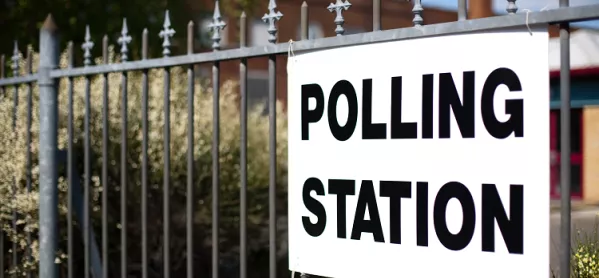Colleges should help to boost participation in the democratic process by registering new students to vote, recommends a new report by the House of Lords Select Committee on Citizenship and Civic Engagement.
The report states: “The Electoral Commission told us that young people are less likely to be registered than other groups and that this is one of the main drivers of lower registration overall. There is a need for targeted action on increasing electoral registration amongst young people.”
Registering students to vote
The report cites the approach being taken by the University of Sheffield, which offers “students a simple tick box to register, and, under a contract with the local electoral registration officer (ERO), is able to reuse data they already hold on the student to complete the registration process”.
This approach “could be a way forward for schools and further education colleges”, according to the report. “This would require schools and FE colleges to be able to contract with local EROs and verify the details of students in the same way that universities can at the moment.”
It adds: “It is also important to ensure that individuals undertaking apprenticeships are not left out of this process. In the case of an apprenticeship, the body responsible for the provision of education should also be responsible for assisting with electoral registration.”
The report, released on Wednesday, recommends that the government “pilot assisted registration at a number of schools and further education colleges across the country”.
“If the pilot is successful, the government should consider making regulations to impose on schools, further education colleges and apprenticeship providers a duty to assist electoral registration officers when required to do so,” it says.
Colleges ‘have a role in political process’
The peers’ report comes amid growing demands for 16-year-olds to be given the vote, with the Association of Colleges (AoC) and the National Union of Students (NUS) having launched a campaign in support of a private member’s bill brought by Labour MP Peter Kyle that has cross-party support. It proposes lowering the voting age to 16, automatically adding 16- to 24-year-olds to the voting register and using educational establishments as polling stations.
Julian Gravatt, AoC deputy chief executive, said: “We agree with the committee that colleges have a role in the political process and that it is worth trying auto-enrolment with opt-outs for voter registration with younger students.”
He added: “What would make a real difference is lowering the voting age to 16.”
The Department for Education has been approached for comment.




